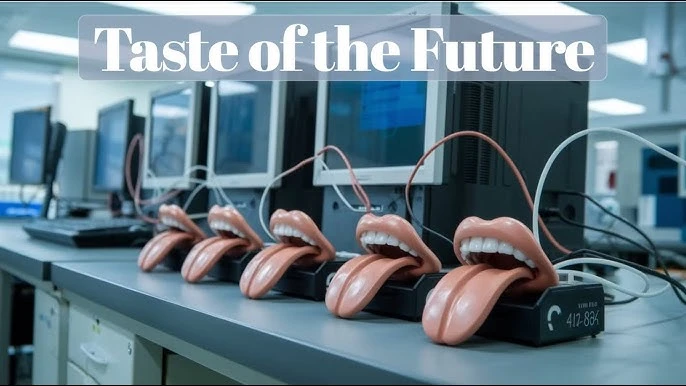Overview
- AI-Powered Food Safety Tool: Penn State’s “electronic tongue” detects food freshness and quality with over 95% accuracy using advanced AI and chemical sensors.
- Enhanced Functionality: It identifies subtle chemical differences in liquids, helping prevent spoilage in perishable products like milk and juice.
- Versatile Applications: Beyond food, this tool may support medical diagnostics, making it valuable for health and safety across industries.
This article delves into the development of an AI-powered “electronic tongue” by Penn State researchers, capable of assessing food freshness, quality, and safety. It details how the device leverages artificial intelligence to detect subtle differences in various liquids and analyzes its potential applications in food safety and medical diagnostics.
AI-Powered Electronic Tongue
Researchers from Penn State University have introduced an innovative AI-powered “electronic tongue” designed to redefine food safety and freshness detection. Equipped with sophisticated sensors and a neural network, this technology promises to bring unprecedented accuracy to quality assessments in food and beverage industries. Unlike traditional sensors, the electronic tongue mimics human taste perception, providing a powerful, scalable solution to address food safety issues at various stages of production and consumption.
AI Infant Intelligence: Pioneering Baby Talk’s Role in AI Evolution article published on May 5th 2024 regarding by SquaredTech
How the Electronic Tongue Works
Penn State’s electronic tongue uses a graphene-based ion-sensitive field-effect transistor (ISFET), which responds to chemical ions in a liquid. Linked to an artificial neural network, the system distinguishes subtle variations in chemical composition across different liquids, including variations in milk, juices, sodas, and coffee blends. By training this AI-powered network on vast datasets, researchers achieved a notable accuracy of over 95% when the AI analyzed samples based on its own parameters.
AI-Driven Innovation in Food Safety
Food safety is a pressing issue, especially with the complexity of modern food supply chains. The electronic tongue identifies food freshness, quality, and potential spoilage in real time, transforming the safety assessment process. This feature is particularly useful for perishable products like fruit juices, dairy, and other liquid-based goods where quality degradation may go unnoticed until it impacts consumer health.
According to the researchers, AI allows for nuanced assessments that go beyond predefined human-set parameters. For example, the electronic tongue can differentiate skim milk from 2% milk, even detecting subtle spoilage indicators. This intelligence provides a foundation for better AI models that could soon support the production and distribution of safer, high-quality foods.
Beyond Food Safety: Medical and Diagnostic Applications
In addition to food safety, the electronic tongue could play a significant role in medical diagnostics. Since the sensor detects chemical compositions at a microscopic level, researchers believe it could eventually aid in diagnosing certain medical conditions by analyzing bodily fluids. This adaptability makes it an invaluable tool across diverse industries, from food and beverages to healthcare.
The application potential for this technology spans beyond research labs. Once developed further, this AI-powered electronic tongue could help industries monitor and manage product quality, reduce waste, and safeguard consumer health on a global scale. With real-time insights and high accuracy, it offers a promising alternative to conventional chemical testing methods that can be costly and time-consuming.
The adaptability of this sensor could pave the way for a new standard in food safety and diagnostics, and as research progresses, we may see electronic tongues used in everyday settings, from grocery stores to hospitals.
By offering a holistic and efficient solution to assessing food freshness and safety, this AI-powered electronic tongue by Penn State represents a technological breakthrough poised to reshape food safety standards globally.
For More Updates: Artificial Intelligence


